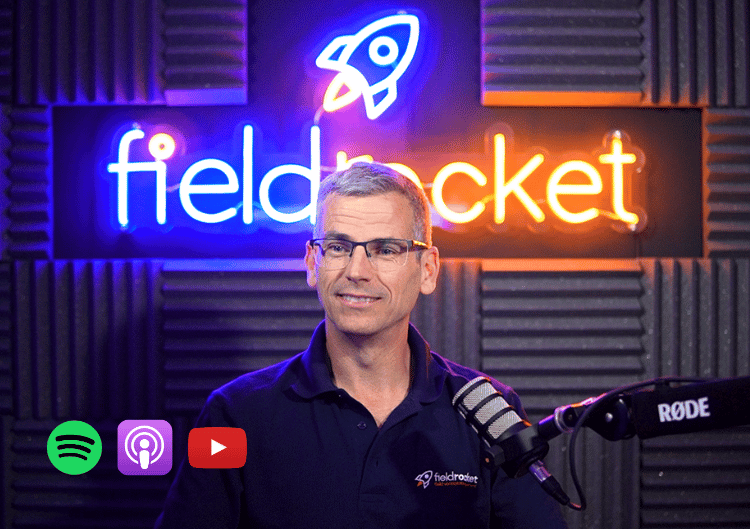EP #32 – Why @tomkatgastraining Isn’t Sold on Heat Pumps (Yet)
Overview
In this FieldRocket podcast, host Tulloch Priest sits down with Derek Robins (@tomkatgastraining), a veteran gas engineer, and training centre owner to discuss the truth about heat pumps, the problems with training, and why the industry isn’t ready to go all-in just yet.
Highlights
Derek’s background
- (1:22) Derek started his apprenticeship in 1983, and was a commercial engineer until 1999 – at which point he started working for the Manchester City Council.
- He started his training centre after a serious car accident and had trouble working on the tools.
Are heat pumps viable?
- (3:20) Derek thinks heat pumps are amazing pieces of equipment, but he has problems with the way they are sold and pushed.
- (4:20) There needs to be a progression. Hybrid heat pumps?
- (6:10) Batteries and solar panels are important alongside a heat pump installation because electricity isn’t cheap – but this is a huge investment.
- (7:20) You can’t simply replace a gas boiler with a heat pump. A lot of work needs to be done on the infrastructure first.
- (8:13) We need the infrastructure, grid, and engineers sorted. The goal of 600,000 heat pumps per year needs at least 30,000 installers.
- (8:38) The average age for a gas engineer is 55, so it’s not realistic to ask them to swap over to heat pumps now. Instead, there needs to be apprentices and a gradual transition.
How can we better implement heat pumps?
- (10:00) For Derek, the key to transitioning into heat pumps is in education.
- (14:00) Installing heat pumps is far more complex than installing a boiler. If you get any of the calculations wrong, you’ll end up costing people a lot of money. Boilers are far more forgiving and versatile.
- (15:15) Heat pumps will become better and more versatile over time.
- (16:20) If Derek were to build a house, he would put a heat pump in it. Retrofitting brings a lot of problems with it, though.
- (20:40) Payment plans could become the norm for heat pumps.
- (22:45) Derek ran some experiments in his own home by reducing the temperature to simulate what it would be like to have a heat pump.

